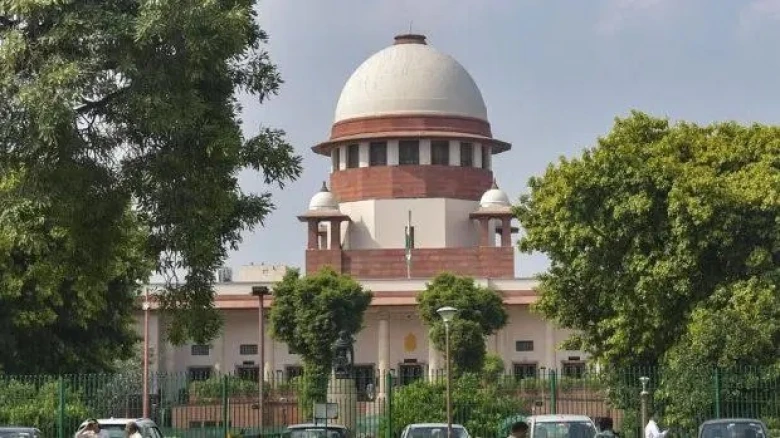The Supreme Court held that information on corporate donors through Electoral Bonds must be made public...
Digital Desk: A five-judge panel led by Chief Justice of India DY Chandrachud and Justices Sanjiv Khanna, BR Gavai, JB Pardiwala, and Manoj Misra unanimously decided on Thursday that the Electoral Bonds scheme is unconstitutional.
The court was deliberating over a series of requests that called into doubt the legality of the Central government's Electoral Bonds Scheme, which allowed political parties to receive hidden funding.
Chief Justice Chandrachud said at the outset of the decision that there are two points of view—his own and Justice Sanjiv Khanna's—and that they both come to the same result.
The court noted that the petitions raised two main issues: first, whether the modifications violate Article 19(1)(a) regarding the right to knowledge, and second, whether unfettered corporate sponsorship jeopardizes free and fair elections.
In rendering the decision, India's Chief Justice declared that the Supreme Court concludes that anonymous election bonds are a violation of both Article 19(1)(a) and the right to information.
The Supreme Court held that information on corporate donors through Electoral Bonds must be made public since these contributions are made purely as a quid pro quo.
The court determined that the amendments to the Companies Act that permit corporations to give unlimited political contributions are arbitrary and unconstitutional.
The Supreme Court ordered the State Bank of India (SBI) to disclose information on Election Bonds cashed by political parties and ordered banks to immediately stop issuing them.
The Election Commission of India (ECI) will publish the facts on its website after receiving them from SBI, per the court's order.
On November 2 of the previous year, a panel of five judges, headed by Chief Justice Chandrachud, reserved their decision on the case.
To improve openness in political fundraising, the government launched the program on January 2, 2018, to replace cash contributions to political parties.
Only political parties registered under Section 29A of the Representation of the People Act, 1951, and with a minimum of 1% of the votes cast in the most recent Lok Sabha or state legislative assembly elections are eligible to receive electoral bonds, according to the program's guidelines.
Any person, business, association, or corporation may purchase an electoral bond, a sort of promissory note, or bearer bond, provided that the buyer is an Indian citizen or is incorporated or founded in India.
The purpose of the bonds is to raise money for political parties. In a sworn statement, the government stated that the Electoral Bonds program's procedure is completely open and forbids the use of money that is unlawful or untraceable.
Several petitions challenging modifications made to several legislation under the Finance Act 2017 and Finance Act 2016 were awaiting a decision from the highest court. The difficulty stemmed from the fact that these modifications have made it possible for political parties to receive unfettered and uncontrolled financial support.

Leave A Comment